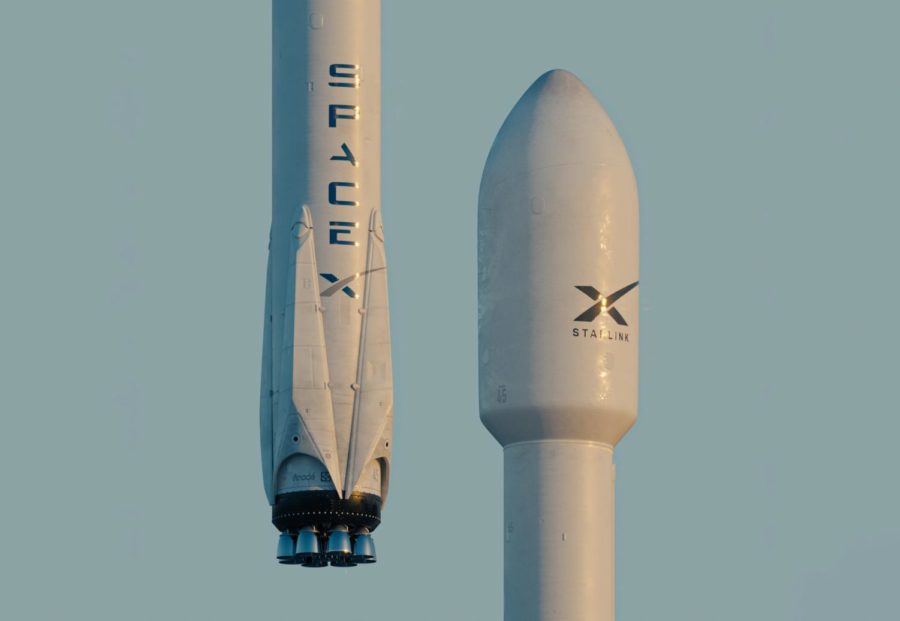The Growing Role of Private Companies in the Space Industry
Private spaceflight company involvement in the space industry continues to grow, without signs of stopping.
Here is a SpaceX launch vehicle.
Last month, Dennis Tito — dubbed the world’s first space tourist after a trip to the ISS in 2001 — announced that he would be returning to space, this time with his wife. Space tourism is not a new phenomenon, with several established spaceflight companies entering the industry. Blue Origin, Jeff Bezos’ private space company which began as a rocket engine supplier, has flown six crewed flights with space tourists as passengers. Beyond integration, some companies have made their niche exclusively space tourism, notably Virgin Galactic and Space Adventures.
In 2023, the role of private spaceflight companies continues to increase in the space industry. In light of the Russian sanctions over Ukraine, Russia ceased all sales of rocket engines to the U.S., which was followed by a congressional ban on the use of Russian rocket engines, making the construction of the historical Atlas V rocket no longer possible. In turn, Blue Origin stepped up to complete the delivery of the two rocket engines to be used in the historical Vulcan Centaur launch. Vulcan’s launch will mark the retirement of the near two-decade long usage of the Atlas V rocket. In its lifetime, Atlas V has made significant contributions to scientific progress in aeronautics, notably shuttling the Mars Reconnaissance Orbiter into space, where it serves as a relay base for the Mars Rover and studies the atmosphere and terrain of the Red Planet, as well as permitting the return of asteroid samples to Earth.
Vulcan’s eventual launch will expect much responsibility and expectation in light of Atlas V’s retirement. Originally developed as its successor, it features Atlas V technology that’s since been improved to be more cost-effective and powerful. While also being the first domestically produced space vehicle to replace Atlas V, Vulcan is another step forwards in commercial space development, with 38 launches already booked for the first launch of Amazon’s satellite-based internet provider, Project Kuiper.
Project Kuiper and Starlink, owned by Elon Musk’s SpaceX, aim to use low-Earth orbiting satellites to provide high-speed internet to places that often lack access to reliable service. Yet Starlink remains far ahead of any competition with over 3,000 satellites already in orbit. To catch up, Kuiper has signed deals with Blue Origin, Arianespace (a French satellite-launching company), and the United Launch Alliance to push themselves into a competitive position. Yet despite these measures, each company faces their own challenges. Kuiper’s first launch is set to be in early 2023 aboard Vulcan, flying with only prototypes meant to test functionality. Other deals with Arianespace for their Ariane 6 rocket, as well as Blue Origin’s New Glenn rocket have been made, but neither launch vehicle has flown before. All three companies face delays with launch dates — Blue Origin has held off until early 2023, whereas Arianespace’s earliest hopes for flight rest in late 2023. A launch in 2024 remains a possibility.
Faced with these delays, Project Kuiper sought more reliable alternatives. Even after a series of social media spats between Jeff Bezos and Elon Musk, Senior Vice President of Devices and Services at Amazon, Dave Limp, said in a Washington Post interview that Amazon is “open to contracting with anyone,” and expressed interest in SpaceX’s Falcon launch vehicle series. Kuiper will likely face more delays and (problems), as well as (problems that are probably gonna increase price for consumers). Kuiper’s satellites are notably heavier than Starlink’s by almost 300 kilograms each, and while that may not be a source of launch or flight issues, they’ll most likely be more expensive to fly into orbit, which might mean a price hike for potential customers.
Kuiper’s shaky start exists in a stark contrast to Starlink — or seemingly so. Although Starlink currently has the largest satellite constellation of any company, as well as footholds in 40 countries globally, its success was not always linear. In late 2018, still early in Starlink’s development period, Elon Musk fired several senior managers responsible for development over the satellites’ launch dates. At least two of those employees were immediately hired for senior positions at Project Kuiper. Two weeks later, two more managers later left the company on their own accord. If this behavior sounds familiar, it’s because Twitter mimicked it almost four years later.
In 2023, the role of private spaceflight companies continues to increase in the space industry.
Marina Tiligadas is a Staff Reporter for 'The Science Survey' where she seeks to inform and spread awareness of current events. Outside of school, Marina...

